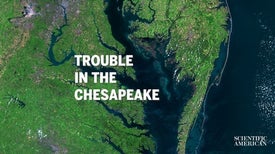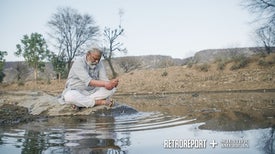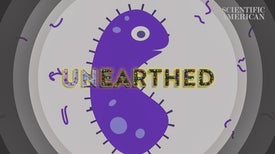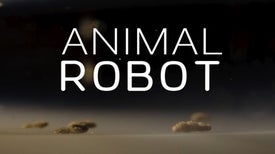Scientists are on a mission to save parasites—not to kill them. Climate change is already doing an increasingly good job at the latter, and that could be a big problem for the world.
You’ve probably seen a “Save the Whales” T-shirt before. But have you ever seen a “Save the Parasites” one? A group of researchers thinks that maybe it is time to start making them.
To most of us, that might seem like a hard sell.
(Maybe it is an especially hard one right now. The popular HBO show The Last of Us has turned Ophiocordyceps unilateralis, an actual “zombie ant” fungus whose behavior the show fictionalized, into a household name. Millions now know it simply as “cordyceps.”)
The word “parasite” conjures imagery of swarms of mosquitoes and guts tangled up with tapeworms, of parasite-borne scourges such as malaria or Lyme disease that infect humans and livestock. These types of parasites need to be controlled or eradicated but are just a small fraction of the total found in nature.
The way parasitism works also doesn’t tend to engender sympathy. The “lifestyle” is all about living at the expense of another. Parasites are evolutionary cheaters. Can’t make it on your own? Just use another body as a shelter and food.
But this view misses a truth that researchers have become increasingly aware of: wildlife parasites help keep ecosystems balanced.
“Parasites are puppet masters—they’re this kind of silent force in ecosystems,” says Colin Carlson, a global change biologist at Georgetown University, who has worked to quantify global parasite biodiversity. “They might be the majority of biomass in some ecosystems. They might make up the majority of food web links. And we never think about them.”
Every species on Earth has a corresponding parasite. (Some species have a number of them.) And many of these hangers-on have been with their hosts for much longer than humans have been around. Lemurs and their parasites, for instance, are thought to have evolved together for the past 60 million years.
This means parasites can be incredibly sensitive to changes in the environment and might be able to indicate a healthy ecosystem or warn of changes in climate or habitat loss. So wildlife parasites need to be studied and be listed as endangered species when applicable, Carlson says.
He points to a horsehair worm in the highlands of Japan whose ultimate host is trout. To reach the trout, the parasite must first hitch a ride in a cricket and take control of its mind to make it drown itself. “What I think is amazing is: it turns out that the trout is endangered, and the majority of their diet comes from these crickets,” Carlson says. “That parasite is basically single-handedly holding that ecosystem together just by changing the behavior of its host.”








